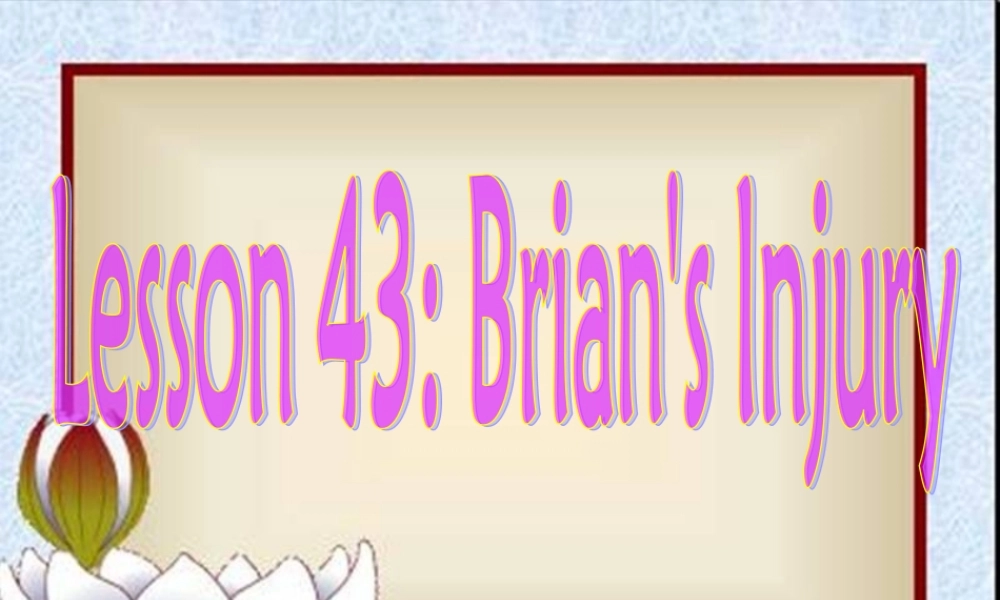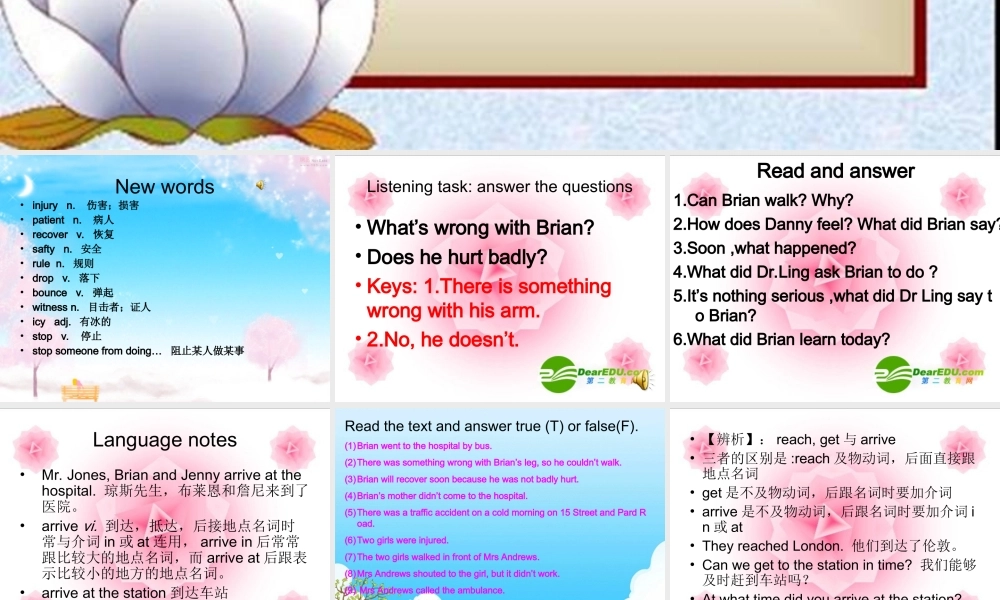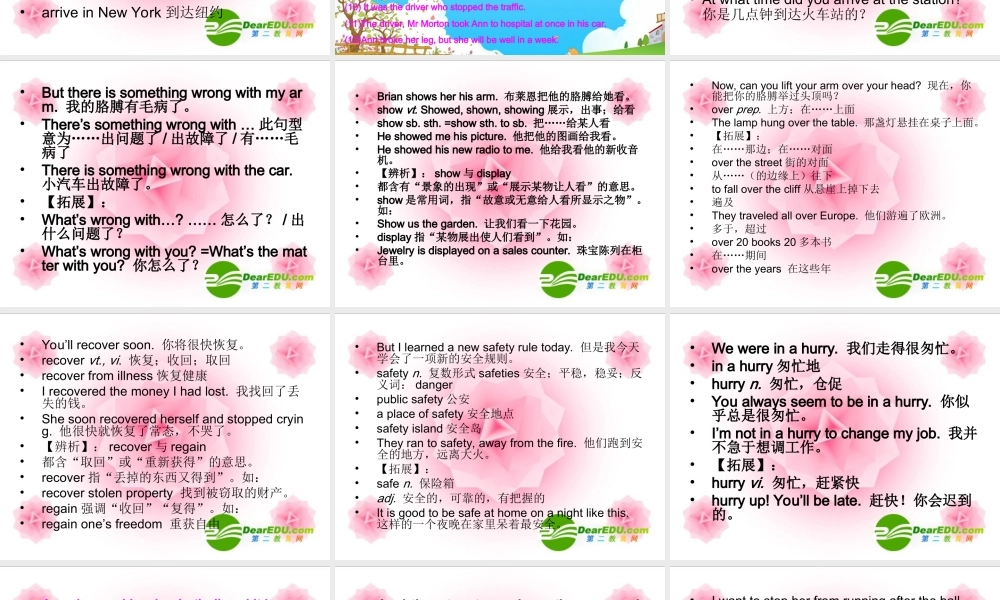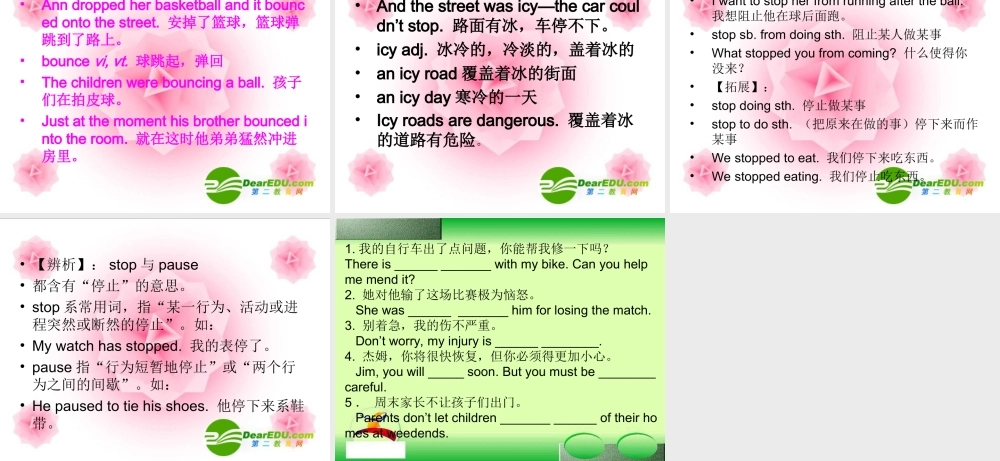New words•injury n. 伤害;损害•patient n. 病人•recover v. 恢复•safty n. 安全•rule n. 规则•drop v. 落下•bounce v. 弹起•witness n. 目击者;证人•icy adj. 有冰的•stop v. 停止•stop someone from doing… 阻止某人做某事Listening task: answer the questions• What’s wrong with Brian?• Does he hurt badly?• Keys: 1.There is something wrong with his arm. • 2.No, he doesn’t.Read and answer1.Can Brian walk? Why?2.How does Danny feel? What did Brian say?3.Soon ,what happened?4.What did Dr.Ling ask Brian to do ?5.It’s nothing serious ,what did Dr Ling say to Brian?6.What did Brian learn today?Language notes•Mr. Jones, Brian and Jenny arrive at the hospital. 琼斯先生,布莱恩和詹尼来到了医院。•arrive vi. 到达,抵达,后接地点名词时常与介词 in 或 at 连用, arrive in 后常常跟比较大的地点名词,而 arrive at 后跟表示比较小的地方的地点名词。•arrive at the station 到达车站•arrive in New York 到达纽约Read the text and answer true (T) or false(F).(1)Brian went to the hospital by bus.(2)There was something wrong with Brian’s leg, so he couldn’t walk.(3)Brian will recover soon because he was not badly hurt.(4)Brian’s mother didn’t come to the hospital.(5)There was a traffic accident on a cold morning on 15 Street and Pard Road.(6)Two girls were injured.(7)The two girls walked in front of Mrs Andrews.(8)Mrs Andrews shouted to the girl, but it didn’t work.(9) Mrs Andrews called the ambulance.(10) It was the driver who stopped the traffic.(11)The driver, Mr Morton took Ann to hospital at once in his car.(12)Ann broke her leg, but she will be well in a week. • 【辨析】: reach, get 与 arrive• 三者的区别是 :reach 及物动词,后面直接跟地点名词• get 是不及物动词,后跟名词时要加介词• arrive 是不及物动词,后跟名词时要加介词 in 或 at• They...



